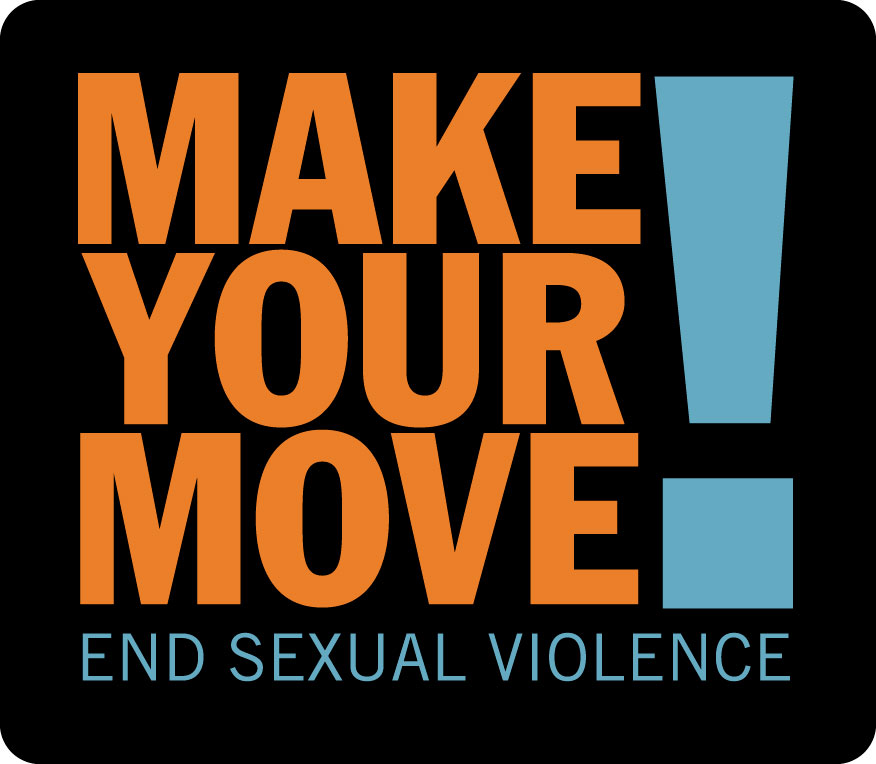COERCION & HARASSMENT
Do you want to have great sex? Consent is the way! We want to help you practice asking for consent and knowing how to understand your partner's response. But sometimes, it is also helpful to know what not to do.
In general, if you ask for consent and respect the response, you are doing great. Coercion and harassment, on the other hand, are two behaviors where consent is not fully respected. These behaviors are not part of a healthy relationship, nor are they part of the healthy community we hope to see in the world around us.
Understanding Coercion
Coercion is a tactic that is used in all sorts of interactions. If you think of how a friend might pester you to do something you don't want to do, you might have a good idea of what coercion looks and sounds like. It is a behavior people adopt because often enough it gets them what they want.
That said, coercion can look a few different ways. In general it happens when someone pressures, repeatedly asks, or threatens another person in an attempt to change that other person's mind. Making a person say yes, or making it very hard or unsafe to express non-consent, is also coercion. Read more about it below, and in our glossary.
Consent Under Pressure
If you are in a sexual situation, it is important to ask for consent. Asking once about a particular activity is how you find out if someone wants and is willing to participate with you. Repeatedly asking to do a particular activity after you received a response, guilting your partner, or trying to incapacitate them is never acceptable behavior. A "yes" received through these tactics does not count as true consent. Intimidation stemming from your stature or physical strength is also coercive behavior.
Pressuring someone, known as coercion, can sound like:
Everyone is doing it.
We should just break up if you're not going to have sex with me.
It’s no big deal! I’ll use a condom.
You liked it last time.
Please? I want you so bad. Just do it for me.
Consent & Power Imbalance
There are certain power dynamics that can appear in relationships - even pretty healthy and loving ones - that can make coercion more likely to happen. When people are in positions that have more power, this is called privilege. Having privilege isn’t good or bad; it is what a person does with that privilege that matters. Our goal here is to help you think about the ways in which you might have power over your partner. By knowing this, you can take the extra care needed to ensure your partner has the genuine ability to give truly informed and enthusiastic consent.
Below is a short list of real identities that create power differences in U.S. culture. Though they are listed separately, many people benefit (or are harmed) by multiple identities. To learn more about privilege and intersectionality, check out scholars like Kimberlé Crenshaw and Peggy McIntosh.
+ Ableism
+ Adultism & Ageism
+ Cissexism
+ Classism
+ Employee/Educator
+ Heterosexism
+ Racism
+ Sexism
+ Xenophobia
Sexual & Reproductive Coercion
An important part of informed consent requires being able to make decisions about your own sexual and reproductive health. Coercion (and abuse) can occur when one partner withholds information, disregards boundaries, or pressures their partner into something they do not want.
+ WITHHOLDING INFORMATION
+ DISREGARDING BOUNDARIES
+ PRESSURING A PARTNER
Understanding Harassment
Harassment is an umbrella term for a variety of sexual behavior that is unwelcome or violates another person. Below are four ways that harassment may appear.
Repeated & Unwanted
When you want to initiate sexual contact, you should ask for consent. Once non-consent is expressed, it is your role, as an initiator, to respect that response. Continued asking is a form of pressure which is coercive. Repeated sexual advances may create a "hostile environment" in a workplace or at school, which is illegal.
Unsolicited
Harassment also includes instances where it would be inappropriate to be asking for sexual contact. If you are hollering at someone down the street, for example, you are harassing them. You do not already have a relationship with them where it would be acceptable to ask for consent or comment on their body. The same goes for brief but intentional touching at bars or on public transit.
Transactional
Coercion can also happen when someone with power over another requests or forces the exchange of sexual contact for a positive outcome. Known as quid pro quo, this type of harassment can also occur when sexual contact is exchanged in order for something negative not to happen. Both variations are illegal.
Severe
Sharing sexual texts or images without permission, physical assaults, and verbal threats are all harassing behaviors. Though the act may not be repeated, the harm done is significant and can have lasting impacts on another person. Severe acts are classified as sexual harassment under Title IX and may also be considered part of a "hostile environment" at work or school.



